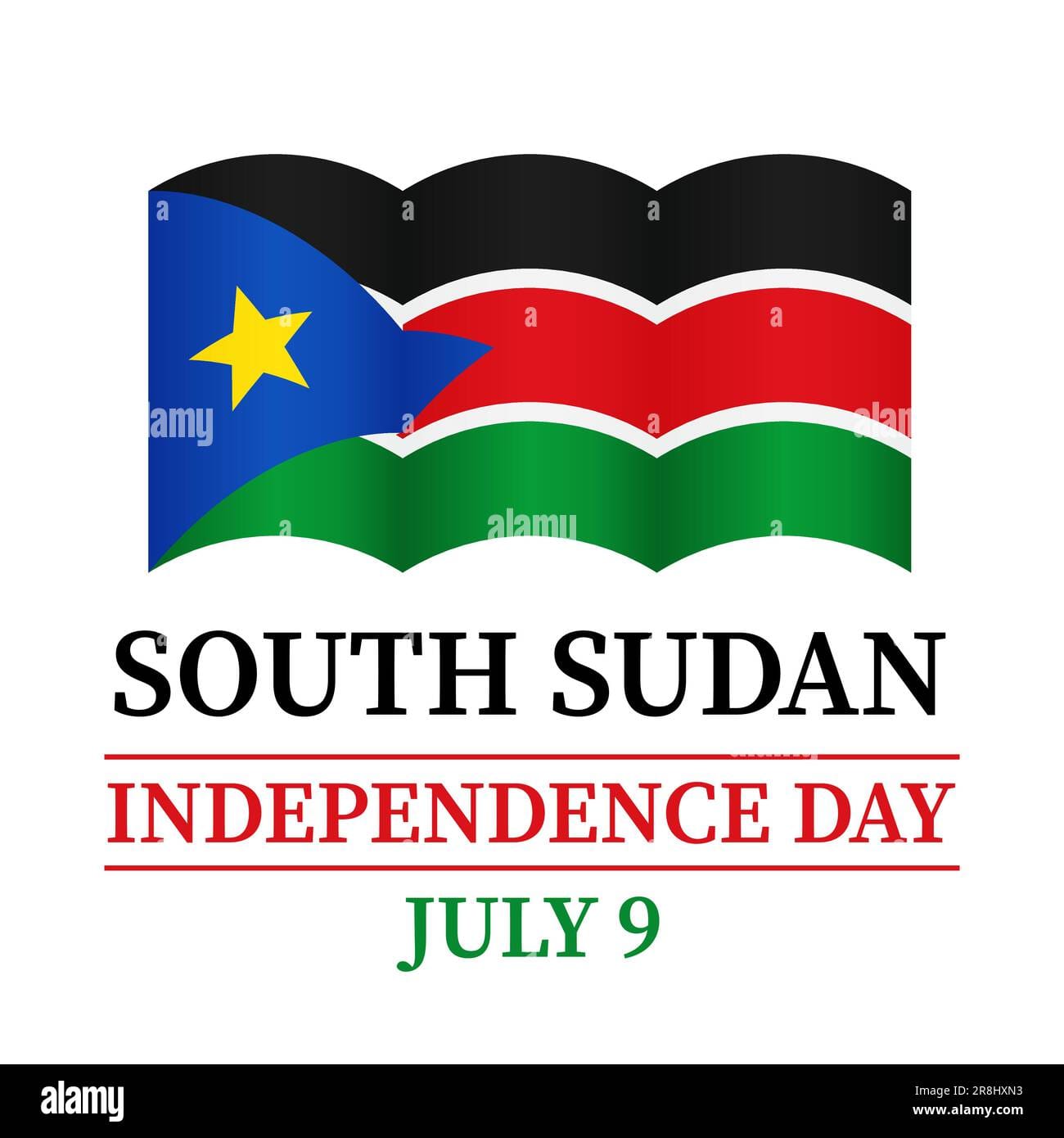What is celebrated on July 9th in South Sudan?

Understanding July 9th: South Sudan's Independence Day Celebration
July 9th marks a significant date in the history of South Sudan, as it commemorates the day in 2011 when the nation gained its independence from Sudan. This pivotal moment followed decades of conflict and struggle for self-determination, making Independence Day a time of reflection, pride, and unity for South Sudanese citizens. The celebrations are not only a tribute to the sacrifices made for freedom but also a reaffirmation of the country's aspirations for peace, stability, and development.
On this day, various activities are organized across the nation and among the South Sudanese diaspora. The celebrations typically include:
- Parades and Marches: Colorful parades take place in major cities, showcasing traditional attire, music, and dance.
- Cultural Performances: Events highlight South Sudan's rich cultural heritage through performances that feature local art, folklore, and storytelling.
- Speeches and Ceremonies: Government officials and community leaders address the nation, reflecting on the journey towards independence and outlining future goals.
- Community Gatherings: Families and friends come together to celebrate with feasts, music, and social activities, fostering a sense of community and national pride.
The significance of July 9th extends beyond mere celebration; it serves as a reminder of the ongoing challenges faced by the nation, including political instability and economic hardships. As South Sudanese people come together to honor their independence, they also express hopes for a peaceful and prosperous future. This duality of celebration and contemplation makes Independence Day a deeply meaningful occasion, allowing citizens to both rejoice in their freedom and acknowledge the work still needed to secure a stable and united nation.
Historical Significance of July 9th in South Sudan
The date of July 9th holds profound historical significance for South Sudan, marking the day in 2011 when the country officially gained independence from Sudan. This monumental event was the culmination of decades of conflict and struggle for self-determination. Following a long civil war, which lasted for over two decades, the Comprehensive Peace Agreement (CPA) was signed in 2005, paving the way for a referendum in January 2011. The overwhelming majority of South Sudanese voted for independence, leading to the establishment of the world's newest nation.
Key Events Leading to Independence:
- Signing of the Comprehensive Peace Agreement (2005)
- Referendum on Independence (January 2011)
- Official Declaration of Independence (July 9, 2011)
July 9th is celebrated annually as South Sudan's Independence Day, a public holiday filled with national pride and cultural festivities. The day is marked by various ceremonies, parades, and events that honor the sacrifices made by those who fought for freedom. It serves as a reminder of the resilience and determination of the South Sudanese people in their quest for autonomy and self-governance. This day not only signifies national pride but also embodies the hopes and aspirations for a peaceful and prosperous future.
Moreover, the significance of July 9th extends beyond mere celebration; it is a moment for reflection on the ongoing challenges faced by South Sudan. Despite achieving independence, the nation has grappled with internal conflicts, economic instability, and humanitarian crises. Commemorating this day allows citizens to unite in their shared history while also acknowledging the need for continued efforts towards peace, reconciliation, and development within the nation.
How South Sudanese Celebrate Independence Day on July 9th
The celebration of Independence Day in South Sudan on July 9th is a significant event that marks the country's liberation from Sudan in 2011. This day is filled with national pride and various festivities that reflect the rich culture and heritage of the South Sudanese people. The celebrations often begin with a series of ceremonial events, including flag-raising ceremonies that symbolize freedom and unity.
Public Gatherings and Ceremonies
On this day, South Sudanese citizens gather in public spaces, parks, and community centers to participate in organized events. These gatherings often feature speeches from government officials, traditional leaders, and community representatives who emphasize the importance of independence and national unity. The atmosphere is lively, with people wearing traditional attire and displaying the national flag, creating a vibrant and colorful scene.
Cultural Performances and Festivities
Cultural performances play a vital role in the celebrations, showcasing the diverse ethnic groups within South Sudan. Traditional music, dance, and storytelling are integral parts of the festivities, allowing people to connect with their roots and heritage. Drumming, singing, and dancing often take place, creating an energetic environment that brings communities together. Local artists may also perform, adding a contemporary touch to the cultural expressions of joy and pride.
Food and Community Feasts
Food is another essential aspect of the Independence Day celebrations. Families and friends gather to share meals, often featuring traditional dishes such as beef stew, kisra (a type of flatbread), and various vegetable dishes. Community feasts may be organized, where people come together to enjoy a variety of foods, symbolizing togetherness and unity. This communal sharing of food reflects the spirit of cooperation and harmony that is central to South Sudanese culture.
Cultural Traditions and Events on July 9th in South Sudan
In South Sudan, July 9th holds significant cultural importance as it marks the country's Independence Day. Celebrated annually, this day commemorates South Sudan's secession from Sudan in 2011, making it the world's youngest nation. The festivities are a vibrant reflection of the diverse cultures and ethnic groups that make up the nation, showcasing traditional music, dance, and art.
Festivities and Celebrations
On this day, various events take place across the country, including:
- Parades: Colorful parades featuring traditional attire and cultural performances are organized in major cities like Juba, the capital.
- Community Gatherings: Families and friends come together for communal feasts, sharing traditional dishes that represent the different ethnic groups.
- Music and Dance: Local musicians and dancers perform traditional songs and dances, emphasizing the rich heritage of South Sudan.
Religious Observances
In addition to public celebrations, July 9th is also a time for reflection and prayer. Many South Sudanese attend church services or hold prayer meetings to give thanks for the country's freedom and to pray for peace and unity. Religious leaders often use this opportunity to address the congregation about the importance of national identity and collective responsibility towards building a prosperous nation.
Cultural Exhibitions
Art exhibitions and cultural displays are another integral part of the Independence Day celebrations. Local artisans showcase their crafts, including beadwork, textiles, and sculptures, reflecting the rich cultural tapestry of South Sudan. These exhibitions serve not only to celebrate the nation's heritage but also to promote local talent and encourage economic growth through cultural tourism.
Importance of July 9th for South Sudan's National Identity
July 9th holds profound significance for South Sudan, marking the day in 2011 when the nation gained independence from Sudan. This date is not merely a celebration of sovereignty; it symbolizes the long struggle for self-determination and the resilience of the South Sudanese people. As the world's youngest nation, South Sudan's independence day serves as a powerful reminder of the sacrifices made during decades of conflict, and it reinforces a collective identity rooted in the desire for freedom and unity.
National Pride and Unity
On July 9th, South Sudanese citizens come together to commemorate their independence with various festivities, including parades, cultural performances, and communal gatherings. These events foster a sense of national pride and unity, essential for a country that has faced significant challenges since its inception. The celebrations provide an opportunity for citizens to reflect on their shared history, celebrate their cultural heritage, and reaffirm their commitment to building a prosperous nation.
Recognition of Diversity
South Sudan is home to a rich tapestry of ethnic groups, languages, and traditions. July 9th serves as an important occasion to acknowledge this diversity while promoting inclusivity and understanding among different communities. The emphasis on unity during independence celebrations encourages citizens to embrace their varied backgrounds and work together towards common goals, fostering a stronger national identity.
Inspiration for Future Generations
The significance of July 9th extends beyond the present, inspiring future generations to appreciate their history and the values of independence and self-governance. Educational initiatives around this date often highlight the importance of civic engagement and national responsibility, instilling a sense of duty among the youth. By celebrating their independence, South Sudanese people not only honor their past but also pave the way for a brighter future, emphasizing the importance of peace, stability, and national development.
Leave a Reply

Other celebrations and holidays